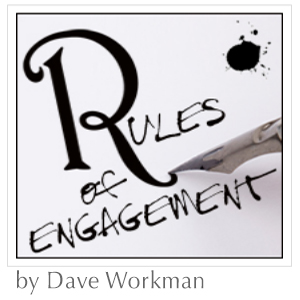A notebook for fiction writers and aspiring novelists. One editor’s perspective.
• Next post • Previous post • Index
Write the Daydream
(Intro to Plotting)
What’s a novel, but a daydream or fantasy we write down and embellish, expand and hone into something coherent, dramatic and hopefully entertaining?
Sounds simple enough, in theory. But how does one begin? How does one even attempt to begin?* How do so many fragmented and rudimentary thoughts (Hey, I’ll call this dude Romeo. I’ll name his girlfriend Juliette. They’ll live happily ever—no, wait, I have a better idea!) emerge to produce a provocative story? Maybe we gaze longingly at books like A Game of Thrones, or The Lord of The Rings, the Harry Potter series or The Time Ships, and think WTF!? How do people create such rich, complex, creative narratives? What were they thinking? What were they smoking? I could never begin to craft such an incredibly detailed epic adventure! Until I figure it out, I guess it’s back to watching reruns of The Gilmore Girls.
Do realize that before we sit down and actually put words to paper, we may spend weeks, months or sometimes years concocting and babysitting a concept that feels as if it could become a story. And yet some novice or wannabe writers will ponder or percolate (or else procrastinate) for years, waiting either patiently or frantically for Just. The. Right. Moment. to shift from creative daydreaming to actually beginning that first draft.
But until you begin actively writing that first line, that first page, that first scene, that first chapter—let’s face it, you may be lost in an uncertain Twilight Zone between creative inspiration and cranking out pages. Procrastination is a very real issue in a writer’s world and, yes—most writers subliminally know when they’re stalling, hiding behind the veil of “My story needs more research.” Hey, we all procrastinate a bit—but if you’ve spent years yearning to write, and you’ve yet to put a word to paper, you might want to tap out a few pages, just to see what all the fuss is about. (You may surprise yourself and feel an overwhelming sense of pride, or awe, or self-gratification.)
Conversely, some beginning novelists—heads filled with so many exciting possibilities—believe they can plop down one day in front of a notepad or a PC and simply begin to scribble or type out a coherent, fully-developed story. Most of those writers don’t realize that stream of consciousness writing will only get you so far….but then what? Writing a novel requires an incredible amount of pre-prose strategy, of organization and finesse. And most of us will likely require a working roadmap (see Outlining) so we don’t lose ourselves along the way. A few lucky writers are able to simultaneously craft a comprehensive story inside their heads as they write, but that’s an ability most of us do not enjoy.
But let’s back up a sec, to the aforementioned …but then what? Three of the most important words for a writer to comprehend. Because most, if not all novels begin with a single What if…? notion or premise. A novel is a logical, sequential series of What if…? scenarios. No sooner than you’ve answered one, another What if…? question should arise—a series of dramatic questions and answers that end only when your story concludes. Just realize that story-telling (e.g.; novel writing) employs the same cerebral techniques as does daydreaming. And more about What if…? questions in Plotting (Part I). One coherent thought leads to another sequential thought, to another thought that provides forward momentum of one sort of another:
Gee, I wish I could fly. What would I do if I could? What might I accomplish? What if…? Or, Linda doesn’t even know I’m alive. If I could only make her notice me! What if…? Or, I love to realm build! Dragons and castles and wizards and dark magic! But where do I start my story? How do I inhabit such a wonderful place. What possibly could happen that will interest readers? Hey, what if a young knight bumps his head, develops amnesia and then….? These fragmented notions, in the hands of a creative mind (or in the mind of creative hands), might easily become the core of a superhero thriller or romantic comedy or epic fantasy—or a thousand other fictional possibilities.
Can’t think of a daydream suitable to become something more? Sure you can. They’re everywhere—snippets of this idea, fragments of that idea— just waiting to be found. Quick—think of something dramatic! Or unexpected! An inciting incident can be as simple as a knock at the door or as ominous as a giant meteor, hurling toward Earth. What about chance meeting in a park? Or somebody in the wrong place at the right time? A lottery ticket found on the ground. Or what if that meteor crashes to Earth with a talking hamster inside. (Hey, I’ve read worse!) Maybe Aunt Judy’s just turned into a flesh eating zombie.
…but then what?
.
* Don’t know where to start? See the appropriately named Where To Start.
.
• Next post • Previous post • Index
.
